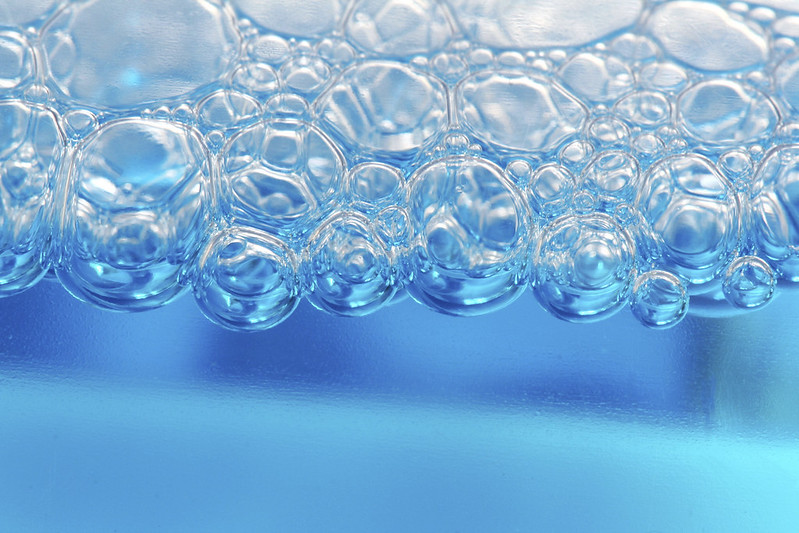Defoamers: Essential Tools for Enhancing Efficiency in Cleaning Products
Defoamers: Essential Tools for Enhancing Efficiency in Cleaning Products
Blog Article
The Function of Defoamers in Enhancing Product Quality and Performance
Defoamers offer as important ingredients that mitigate this concern, making certain smoother production workflows while enhancing the visual and practical attributes of the final items. The option of the ideal defoamer can be crucial to achieving ideal outcomes, raising essential concerns about solution compatibility and efficiency metrics that merit additional exploration.
Understanding Defoamers
Comprehending the role of defoamers is vital for maintaining item top quality throughout numerous industries. Defoamers are chemical ingredients created to reduce and avoid the development of foam in fluid systems, which can negatively affect processes such as blending, filling, and surface area stress. Frothing can lead to inefficiencies, item issues, and endangered visual charm, making defoamers an important element in manufacturing operations.
In commercial applications, defoamers aid to improve product consistency and security. The reliable use of defoamers not just ensures smoother production procedures but additionally contributes to exceptional product efficiency.
Additionally, the selection and formula of a defoamer should line up with certain application needs, such as compatibility with various other active ingredients, performance under differing temperature level and pH conditions, and prospective governing constraints. Inevitably, recognizing defoamers' features and their importance in numerous solutions is crucial for optimizing production and making sure the finest end products.
Kinds of Defoamers
Defoamers can be classified right into numerous types based upon their structure and device of activity. The key kinds include silicone-based, non-silicone organic, and not natural defoamers.
Silicone-based defoamers are among one of the most reliable, largely because of their ability to spread out promptly on the liquid surface and interfere with foam formation. Their unique chemical framework permits superior security, making them appropriate for high-temperature applications and atmospheres with differing pH levels.
Non-silicone natural defoamers, frequently made up of all-natural oils or fats, are valued for their biodegradability and reduced poisoning. These are commonly made use of in food and drink applications where safety and security and environmental influence are vital.
Not natural defoamers, that include materials like talc or calcium carbonate, act by raising the thickness of the liquid, thereby decreasing foam stability. They are commonly made use of in commercial procedures where compatibility with various other materials is not a worry.
Each type of defoamer has unique benefits and restrictions, permitting tailored remedies relying on the certain lathering issues encountered in different applications. Comprehending these distinctions is essential for enhancing performance and accomplishing desired item top quality.
Applications Throughout Industries
Various markets take advantage of defoamers to enhance item quality and operational efficiency. In the food and beverage field, defoamers are crucial in procedures such as brewing and dairy manufacturing to stop foam development, which can bring about inefficiencies and product disparity. By controlling foam, manufacturers can make certain much better yield and a much more uniform product.
In the pharmaceutical market, defoamers play an important role in the formulation of fluid medicines, where extreme foam can hamper mixing and accurate application. Their use aids preserve the stability of the formulations and helps with smoother production procedures.
The paint and finishes market additionally counts on defoamers to boost the efficiency of products during application. By lessening foam, these ingredients make sure a smoother surface and boost the visual qualities of the final product.

Benefits of Using Defoamers
While the application of defoamers differs across sectors, their benefits constantly improve product high quality and procedure efficiency. One significant benefit is the decrease of foam formation throughout producing procedures, which can otherwise find this bring about manufacturing hold-ups and disparities in item quality. By decreasing foam, defoamers enable a smoother flow of materials, assisting in a lot more effective operations and lowering the chance of equipment malfunctions.
Furthermore, using defoamers can improve the look and texture of last items. In sectors such as finishes, paints, and food handling, extreme foam can compromise the visual aesthetics and general top quality, while the proper defoamer application ensures an uniform finish and desirable characteristics. Additionally, defoamers can contribute to cost financial savings by decreasing waste throughout manufacturing and maximizing making use of resources (defoamers).

Picking the Right Defoamer
Picking the ideal defoamer is critical for enhancing production procedures and making sure product top quality. The choice of defoamer influences not just the performance of foam control however additionally the general efficiency attributes of the last product. Factors to consider include the kind of application, the chemistry of the solution, and the environmental problems under which the item will be made use of.
Various sectors might call for particular defoamer kinds, such as silicone-based, natural, or polymeric defoamers. Understanding the compatibility of the defoamer with the main ingredients is vital to prevent adverse reactions that might jeopardize item stability. In addition, the defoamer's performance in numerous temperature levels and pH degrees have to be examined to ensure consistent performance.
Testing the defoamer in small-scale applications can supply important insights into its performance and suitability. Consideration of regulatory conformity, specifically in food, pharmaceuticals, and cosmetics, is critical in picking a defoamer. Ultimately, a complete analysis of these variables will bring about the selection of a defoamer that not only manages foam effectively but also enhances the high quality and performance of the final item.
Final Thought

Finally, defoamers are crucial ingredients that considerably improve product top quality and efficiency across various industries. By efficiently decreasing foam development, these agents not just enhance operational performance however also add to the aesthetic and practical integrity of items. The critical choice and application of defoamers cause cost savings, enhanced source usage, and enhanced consumer complete satisfaction. Generally, the importance of defoamers in industrial procedures can not be overemphasized, as they play an essential duty in accomplishing premium and consistent results.
Lathering can lead to inadequacies, item problems, and jeopardized aesthetic allure, making defoamers a critical element in making procedures.

Report this page